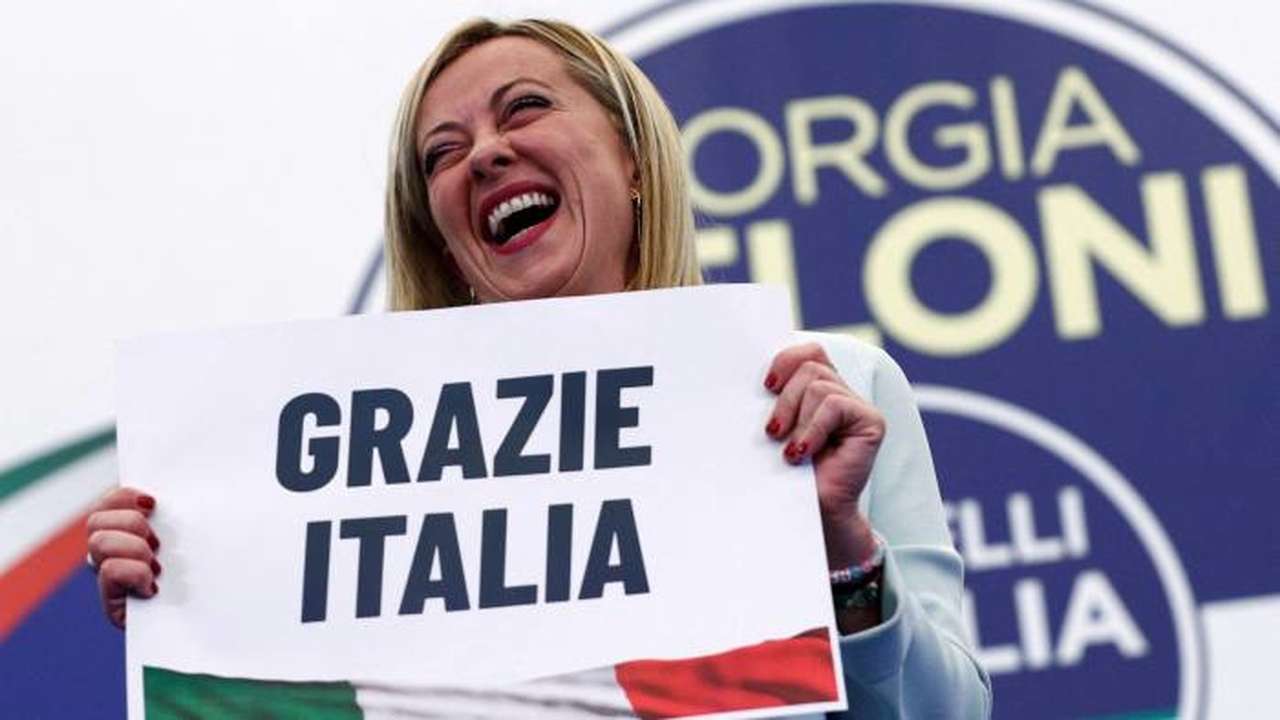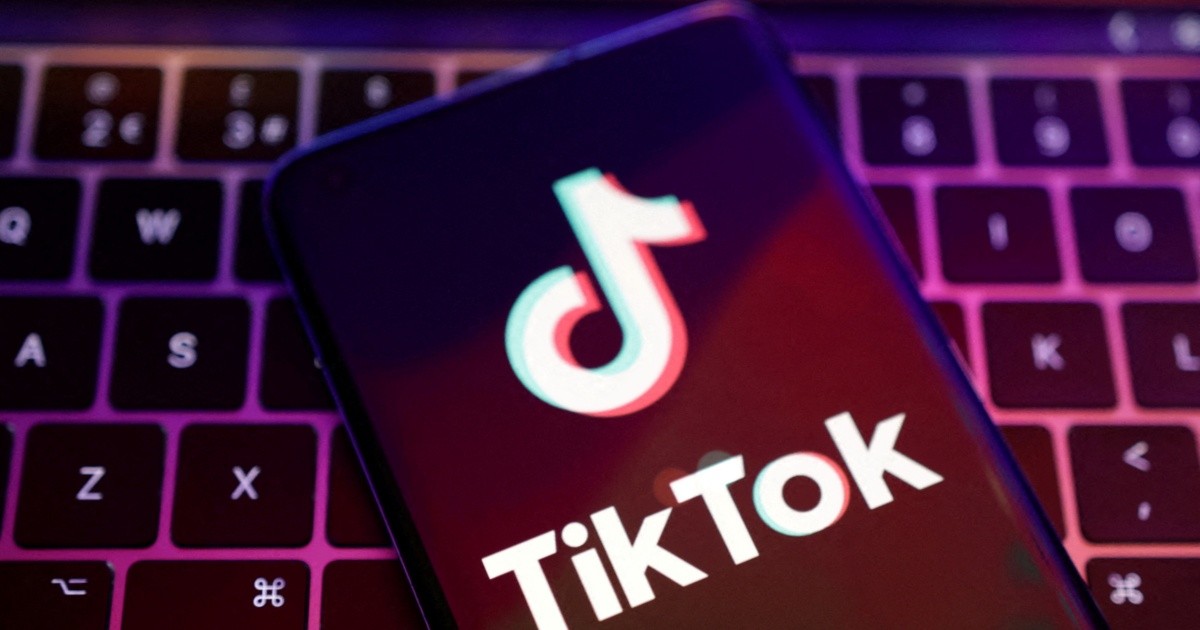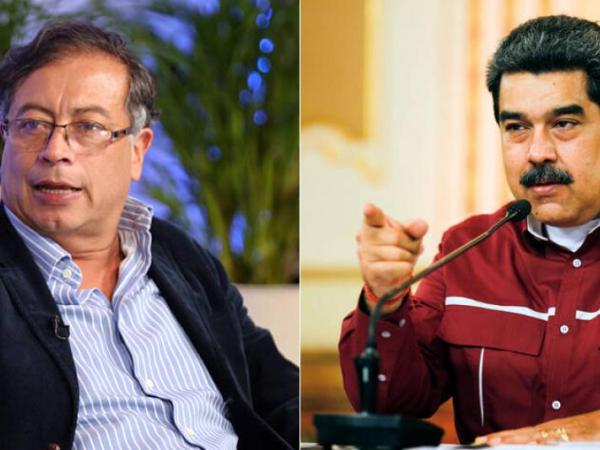Exactly 100 years after in 1922 the dictator Benito Mussolini imposed fascism on the Italiansthis Sunday a party with neo-fascist roots, the Brothers of Italy, obtained the largest number of votes in the national elections in Italy and has placed in the Palazzo Chigui to the new Prime Minister Giorgia Meloni, the first woman to hold office in the country.
Meloni, practically without political experience but well articulated and popular, mainly among the middle and working class according to a commentary on the television network RAI, achieved 47% of the votes within the framework of a far-right coalition. In Italy, the electoral political system is mixed, some deputies are elected by a majority against others; that is, the candidate with the most votes takes all the others, even if they are from other parties. And in other constituencies the vote is nominal, each candidate keeps his own.
the shake
This shakeup of Italy by the far right immediately changes the geopolitics of Europe, putting a “Eurosceptic” party in a position to lead a founding member of the European Union and its third economy.
This is how the European right-wing political class immediately praised Meloni’s victory and has seen the meteoric rise of his party as a historic message to Brussels, while the Italian left predicted “dark days” and promised to keep the country at the heart of Europe.
The near-final results, this Monday with less than 10% of votes left to count, showed that the center-right coalition won around 47% of the vote, with Meloni’s Brothers of Italy snatching around 26%. Its coalition partners shared the rest. Matteo Salvini’s Anti-Immigrant League achieved 9% and, the more moderate Forza Italia of former Prime Minister Silvio Berlusconi, 8%.
On the other side of the spectrum, the center-left Democratic Party, heir to the famous Italian Communist Party, and its allies, obtained around 26% while the 5 Star Movement, which had been the one that obtained the most votes in the parliamentary elections of 2018, saw its percentage of votes reduced by half, around 15%.
In turn, voter turnout was a historic low of 64%. Several exit polls suggested that voters had stayed home in protest, disenchanted by clandestine dealings between the political classes, sponsored by the last three governments.
Meloni, whose party traces its origins to the post-war neo-fascist Italian Social Movement, tried to project a unifying tone in his speech on Monday morning, noting that Italians had finally been able to pinpoint their leaders.
“If we are called to govern this nation, we will do it for everyone, we will do it for all Italians and we will do it with the aim of uniting the people,” Meloni said. “Italy chose us. We will not betray him as we have never done before.”
While the center-right was the clear winner, the formation of a government is still weeks away and will involve consultations between party leaders and President Sergio Mattarella. Meanwhile, outgoing Prime Minister Mario Draghi continues to play an interim role.
The elections, which took place some six months after the fall of the Draghi government, came at a crucial moment for Europe, which is facing the Russian invasion of Ukraine and related high energy costs, a fact that has affected the pocket of Europeans, Italians included.
A Meloni-led government is largely expected to follow Italy’s current foreign policy, including its pro-NATO stance and its strong support for supplying Ukraine with arms in its defense against Russia’s invasion, even as its allies from the coalition take a slightly different, softer tone.
Now both Berlusconi and Salvini have ties to Russian President Vladimir Putin. While both have distanced themselves from the invasion, Salvini has warned that sanctions against Moscow are hurting Italian industry, and even Berlusconi has referred to Putin’s invasion, justifying it as something imposed by pro-Moscow separatists in Donbas. .
Changes
A bigger change is likely to come and perhaps cause friction with European powers due to migration. Meloni has called for a naval blockade to prevent migrant boats from leaving North Africa’s shores and has proposed screening potential asylum seekers in Africa before they leave on smugglers’ boats for Europe.
Salvini made it clear that he wants Salvini’s League to return to the Ministry of the Interior (it was in the Draghi government) where it imposed a harsh anti-immigrant policy. But he may face an internal leadership challenge after suffering an abysmal result of less than 10%, with Meloni’s party overtaking him in his northeastern stronghold. The formation of the new government will have to be negotiated between the coalition parties.
Salvini acknowledged that the League was punished for his government alliances with 5-Star and then with Draghi, but said: “It’s a good day for Italy because we have five years of stability ahead of us.”
On relations with the European Union, analysts point out that despite all his “Eurosceptic” rhetoric, Meloni moderated his message during the campaign and has little room for maneuver given the unexpected economic gain that Italy is receiving from Brussels in the funds of recovery from the COVID-19 pandemic. Italy secured some $191 billion, the bulk of the EU’s $750 billion recovery package, and is subject to certain reform and investment milestones it must reach to receive it all.
Reactions of the European extreme right
Meloni has criticized the recent EU recommendation to suspend 7.5 billion in funding for Hungary over concerns about democratic backsliding, but defending Viktor Orban as an elected leader in a democratic system.
Orban’s political director, Balazs Orban, was one of the first to congratulate Meloni. “In these difficult times, we need more than ever friends who share a common vision and approach to Europe’s challenges,” he tweeted.
????? PM Orbán has sent letters to @GiorgiaMeloni, @matteosalvinimi, @berlusconi congratulating them on the election results. “I look forward to our future cooperation to preserve peace in our countries & in Europe, to restart the European economy and to ease the energy crisis.” pic.twitter.com/XPAL9kMT49
— Balázs Orbán (@BalazsOrban_HU) September 26, 2022
French far-right leader Marine Le Pen praised Meloni for having “resisted the threats of an undemocratic and arrogant European Union.”
In turn, Santiago Abascal, the leader of Spain’s far-right opposition party Vox, wrote on his twitter account that Meloni “has shown the way to a Europe that is proud and free of sovereign nations that can cooperate in the name of security.” and the prosperity of all.
Meloni is also president of the right-wing European Conservative and Reformist group in the European Parliament, which brings together Brothers from Italy, the Law and Justice Party from Poland, Vox from Spain and the Democrats from Sweden, who have just won the elections there in a big way. on a breakout platform, reduce crime and limit immigration.
“The trend that emerged two weeks ago in Sweden was confirmed in Italy,” acknowledged the leader of the Democratic Party, Enrico Letta, calling Monday a “sad day for Italy, (and) for Europe.”
“We look forward to dark days. We fight by all means to avoid this outcome,” Letta told a somber news conference. While she acknowledged that the future of the party and her own future required reflection, she vowed: “The PD will not allow Italy to leave the heart of Europe.”
Thomas Christiansen, professor of political science at the Louiss Universityof Rome, and executive editor of the Journal of European Integrationpointed out that Italy has a tradition of following a consistent foreign and European policy that is, in a way, bigger than the interests of individual parties.
“Whatever Meloni is up to, it will have to be moderated by his coalition partners and, in fact, with the established consensus of Italian foreign policy,” Christiansen said in an interview, with the AP agency.
Meloni proudly touts his roots as a militant of the neo-fascist Italian Social Movement, or MSI, which was formed after World War II from the remnants of Mussolini’s fascist supporters. She joined in 1992, when she was 15 years old.
During the campaign, Meloni was forced to respond after Democrats used her party’s origins to paint her as a danger to democracy.
“The Italian right has consigned fascism to history for decades, unambiguously condemning the suppression of democracy and the ignominious anti-Jewish laws,” he said in a campaign video.






